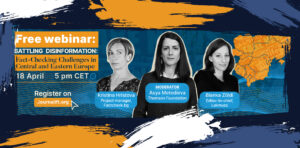Ramize Salihaj is currently with her family at her home in Kosovo to spend her first vacation in her hometown since she started working as a nurse in Germany.
The 23-year-old has obtained a bachelor’s degree in nursing at one of the private colleges in Kosovo, and started working at her first job in Germany three months ago.

She points out that the reason she started working in Germany was precisely the limited opportunities that Kosovo offered her to practice her profession, for which she studied.
“The idea for employment in Germany came from the college; we were informed about job opportunities in Germany in the final year of studies where students with higher grades had the opportunity to continue further. After that, the college, in cooperation with the hospital, offered me a contract which I then considered and decided to accept it,” says Salihaj.
The decision to live and work in another country was initially not received well by Salihaj’s family, but now that she is back and has told them about the working conditions there, going back to continue working in another country is easier for the young nurse.
“In the beginning, my parents did not support me for the decision I had made, but now that they know my working conditions, they are satisfied,” she said, among other things.
Katerina Xhihani, a nurse from Albania, who has been working in Germany for four years, did not have employment opportunities in the field she studied either.
After I finished my studies, I applied for many jobs, hoping that I would get a response, be it even a rejection, but that never happened. I would hear various conversations that usually take place in neighbourhood cafés, he works there..., but he is friends with..., he has a friend but he has paid money to get this job and he is still not sure he’ll keep it. When I would hear such conversations, I would lose all hope that one day I would have a job, even with a minimum wage, precisely at an age and at a point when you have dreams and desires,” she said.
Xhihani says she initially worked at a nursing home until she could speak fluent German.
“I left Albania four years ago, immediately after I finished high school. A German company that had come to Albania at that time enabled me to learn German and after that, I got the nursing licence in Germany. The company helped me not only to obtain these but also in mediating to find a job in Germany,” says Xhihani.

In addition to the challenge of studying and finding a job in their field of study, nurses and doctors from Kosovo and Albania are “forced” to leave their country of birth to work in countries where they are offered better working conditions.
For many medical professionals of both countries, Germany is the right destination to pursue their careers after completing their studies.
Nurses: We left because Germany offered us more than our country
The number of immigrants varies from country to country; it is estimated that 8,724 people left Kosovo in 2020, while over 15 thousand more or 23,854 people left Albania.
In 2019, the German Embassy in Pristina issued more than 50,000 visas. Of these, about 36 thousand visas were for short-term stays (Schengen visas) and about 15 thousand national visas for long-term stays, i.e., family reunion, work visas, study visas, etc.
“Due to travel restrictions caused by the COVID-19 pandemic, in 2020, the German Embassy in Pristina issued only 18,000 visas. This includes 8,000 short-term visas and 10,000 long-term stay visas,” says the response of the German Embassy in Kosovo.
At the time of publication of this article, the German Embassy and the Ministry of Foreign Affairs in Albania have not provided any answers about the number of visa applications to Germany submitted by Albanian citizens.
Nurse Ramize Salihaj tells that the precondition to start working in one of the German hospitals was learning German having a visa issued from the embassy.
“The procedures for starting work in Germany have taken about more than a year due to the pandemic and German language courses have taken longer to complete.
The course was free; it was paid by the faculty, which helped us with application procedures,” says the nurse.
On the other hand, nurse Katerina Xhihani, said that the advancement in German language has helped her to work in another hospital.
“After a while, somehow, I started socialising, I started speaking the language more fluently. I started gaining experience in my profession, I can call it a second profession. I have given myself a lot of courage and bravery to move forward. After 6 months, I felt independent at work,” says Xhihani.
In the last four years, 454 doctors have left Kosovo and 6,500 nurses have left Albania to continue working in other EU countries, mainly in Germany, according to data from the Chamber of Physicians.
Pleurat Sejdiu, head of the Chamber of Physicians in Kosovo said that most doctors, once they received their work licences, stated that they are leaving due to working conditions, residency education programme, and salaries.
“Their average age is over 31 years old, which clearly shows that it is the newly graduated doctors who tend to leave, and this is the most essential generation for the recovery of the health system in Kosovo, our future. Currently, our health system needs at least 2,500 doctors to get closer to international standards,” said Sejdiu.
According to the Human Resources Management Sector in the Central Directorate of Healthcare Services Operator (HSO), over 5,500 candidates have applied in “Nurses for Albania” portal in different fields of medicine. Employments referring to the period 2019-2021 are 3,117 in total, i.e., 987 employments in 2019, 1,220 employments in 2020 and 910 employments in 2021 (for the period January-October). According to the answer, it turns out that the most employed age group is 22-30 years old.
Xhihani does not see Albania as an option for a job opportunity, as she states that it was impossible for her to get employed immediately after graduating from university.
“In Albania, I was not immediately offered the opportunity to have a job. This was a very difficult time for me because if I could not find a job, I would be dependent on my family again and I would not be able to integrate but I would be staying at home at the most ideal age to achieve something in life. It would be a futile investment of my time, for five years in a row, financially as well, my family expenses, and of their sacrifices. These were among the main reasons that pushed me to leave Albania and follow this path,” says the young woman.
According to INSTAT data, 3,429 students continue their higher education studies at the medical university. After graduating from university, only 15% of them can manage to secure a job.
Germany offers “dignified” conditions for medical staff, Albania and Kosovo have the highest number of departed nurses
Apart from doctors and nurses who are now working in Germany, others working in Kosovo and Albania have migrated to EU countries as an alternative to their careers.
Germany consists of a network of 1,900 hospitals, 150,000 doctors, and 28,000 psychotherapists providing outpatient care services, as well as nearly 19,500 pharmacies that provide health care services to an estimated 83 million people in Germany according to data from the German Federal Ministry of Health.
It is also said that 30% of people in Germany go to the doctor three to five times a year.

Albulena Luzha is one of the young nurses who, despite being able to secure a job at Ferizaj Regional Hospital in Kosovo, is still undecided and with her head “looking back” to practice this profession in the future in Kosovo, as she is interested to immigrate to Germany.
The experience of her colleagues, who are now working elsewhere outside of Kosovo, has led her to consider a second career development opportunity.
“One of the reasons why I decided to continue working outside Kosovo, more precisely in Germany, is more opportunities for advancement in the work I do and good working conditions. From what I have heard from the experience of my colleagues, jobs are very stable in Germany and this has motivated me to look to Germany,” said Albulena.
Nurse Amra Hyka, who currently works as a nurse in the department of general surgery at “Mother Teresa” University Hospital Centre in Tirana, has mentioned the three factors that, according to her, influence young people to leave Albania and choose Germany to practice the doctor’s profession. “To be realistic, there are many factors in our country that serve as indicators and motivation for young people to leave this country, but I will mention some of them: higher salaries, better working conditions, respect and appreciation for the doctor,” said Hyka.
In 2019 and 2020, 520 doctors graduated in the branch of general medicine in the Faculty of Medicine at “Hasan Prishtina” University of Prishtina alone, with an additional 131 young students graduating in nursing in the same period.
The Faculty of Medicine has announced that students hold their internships only in certain subjects.
“During their studies, in terms of practical work, students only have exercises they are obliged to attend during the academic year in the subjects they attend. If you are thinking in terms of paid internships, those jobs are not offered by the faculty,” states the response.
Due to conditions and healthcare situations in Albania and Kosovo, doctors and nurses are choosing options that take them to countries with better developed healthcare.
The Ministry of Health in Tirana preferred not to give further explanations about the departure of nurses and doctors to Germany after the request for information, stating that:
Regarding the structures under the Ministry of Health and Social Welfare (MHSW), we find that there are no shortages of healthcare staff in the nursing profile. We consider that it is the right of everyone to move freely and to practice their profession in their country of choice.
Meanwhile, the Ministry of Health in Kosovo have not responded until the Whereas, the Ministry of Health in Kosovo has not returned a response until the publication of this article.
The “struggle” to get a job in the nursing profession is becoming more difficult for both Albanian and Kosovar nurses; they choose to leave this “struggle” and go to European Union countries to practise their profession under conditions, which are not offered to them in their own countries.
Gentiana Ahmeti (Kosovo), Jona Koso (Albania), and Xhoana Callaku (Albania)































